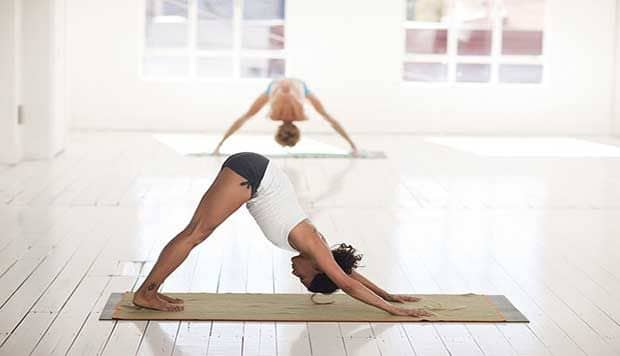
Yoga is considered a gentle form of exercise, so I was frustrated when my back muscles cramped and I found myself in bed, unable to stand or walk after a class. A wise bodyworker asked me to describe what I had done during the class.
“Well, I saw someone move deeper into a pose, so I thought I could go deeper too,” I replied.
Laughing, she said, “That’s not yoga you’re doing, it’s competitive stretching!”
I had to admit she was right.
How much of our behavior is driven by comparisons with others? How often do we feel compelled to purchase a new car, accessory, or electronic device after someone else buys one? How many of us suffer from FOMO—the fear of missing out—so we take on a new activity or role we don’t have time for, say yes to an event we don’t want to go to, or volunteer for something we have no interest in, in order to “keep up” or not miss out? How much time is consumed by self-doubt as we worry that we’re not “as good as” another person at work or in our life?
The days I spent in bed gave me ample time to reflect on this impulse to compare.
Comparisons are set ups.
While striving to do as well as or better than others can motivate us to study, practice, or improve, it tricks us into reaching for the wrong goal. Yes, winning is usually more fun than losing. But winning alone, without also doing our best, enjoying the fun, or achieving some growth through the experience, is often hollow and unfulfilling. And if our sole trophy is the sense of being better than someone else, the joy we might feel is easily overshadowed by the anxiety that we may not come out on top next time. The pressure to continue to triumph may even undermine our further attempts to succeed.
We’ve all seen many talented athletes crumble under this kind of pressure.
Freeing ourselves from the trap of comparison is simple, although not as easy as we might hope. The hard part is challenging the belief that our worth or importance is tied to being equal to or better than someone else.
The first step in changing this pattern is to recognize when we’re comparing.
This gives us the opportunity to ask some important questions: What feels joyful, interesting, or meaningful in doing this? In what ways will I learn and grow through this experience or effort?
We can then refocus our attention on this. We can set a new personal goal and agree to allow ourselves to feel successful if we meet that. In this way, our efforts are never eclipsed by another’s and we remain focused on the right goals—following our passion, learning and growing, and experiencing the adventure and exhilaration of living an authentic life.


